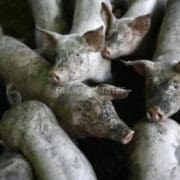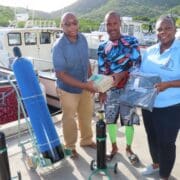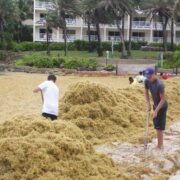La peste porcine africaine : la sensibilisation pour éviter cette maladie animale en Martinique
Black Immigrant Daily News
Cette maladie qui touche les porcs et les sangliers est aux portes de notre île, notamment en Haïti et en République dominicaine.
Le ministère de l’agriculture lance une campagne de communication pour éviter que la peste porcine africaine ne gagne la Martinique. Le virus s’étend actuellement en Europe et dans les Antilles.
Très contagieuse et mortelle pour les porcs et les sangliers, la PPA peut occasionner de sévères pertes économiques pour les éleveurs mais ne présente aucun danger pour la santé humaine.
Depuis juillet 2021, indique le ministère, plus de 1600 foyers de PPA ont été déclarés à l’Organisation mondiale de la santé animale (OMSA) en Haïti et République dominicaine. La maladie est devenue endémique dans l’île d’Hispaniola.
Vigilance accrue
« La proximité géographique entre la République dominicaine et les collectivités et départements/régions français d’Outre-mer dans cette zone (Saint-Martin, Saint-Barthélémy, Guadeloupe, Martinique et Guyane) ainsi que les liaisons aériennes et maritimes existantes entre ces territoires doivent inciter à une vigilance accrue dans ces territoires français et dans toute la région », indique le ministère.
L’ensemble des personnes intervenant en filière porcine est ciblé par la campagne. À savoir, tous les détenteurs de porcs (professionnels et particuliers détenteurs), les vétérinaires, les transporteurs d’animaux ; les travailleurs saisonniers en exploitation agricole de toute nature issus de pays où la maladie est endémique, en particulier de Haïti et de la République dominicaine ; les voyageurs et les professionnels du transport routier, aérien et maritime.
Mesures recommandées
– Pour les éleveurs et les transporteurs, il s’agit de respecter les règles de prévention et les mesures sanitaires de biosécurité (nettoyage et désinfection des véhicules et du matériel utilisé), être vigilants et signaler et déclarer toute suspicion de PPA à la Direction départementale de l’agriculture et de la forêt (DAAF) de Martinique.
– Pour les voyageurs et les travailleurs saisonniers, jeter les restes d’aliments à base de porc dans des poubelles prévues à cet effet et fermées car le virus peut se transmettre aux porcs domestiques par la viande ou des produits à base de viandes contaminées.
« Chaque acteur est invité à respecter strictement les mesures de prévention pour ne pas introduire ou diffuser le virus en Martinique. Les compagnies de transport sont notamment appelées à veiller au respect des mesures préconisées pour les voyageurs », indique le ministère.
Plus d’infos sur le dispositif de campagne :
https://agriculture.gouv.fr/peste-porcine-africaine-le-kit-de-communication
Pour en savoir plus sur la peste porcine africaine :
NewsAmericasNow.com











